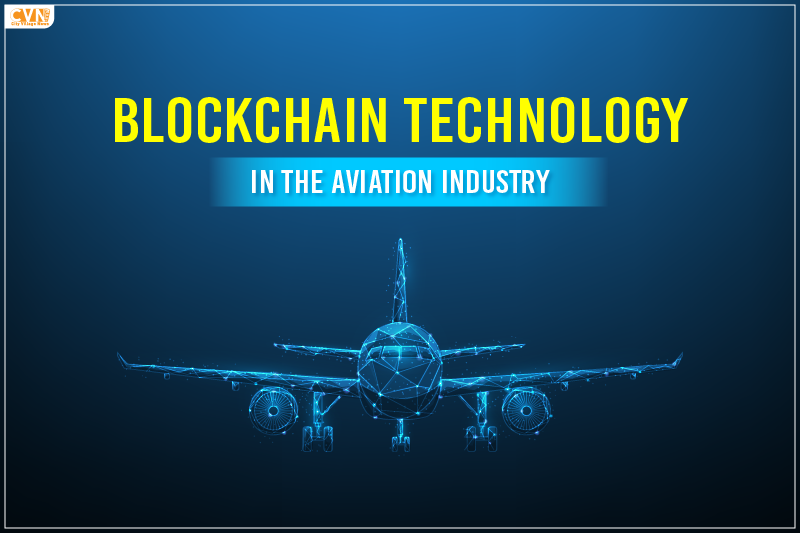Blockchain technology has emerged as a transformative technological force across various sectors. And the aviation industry is no exception. With its ability to provide transparency, security, and efficiency, blockchain is revolutionizing how transactions and data are managed in the aviation sector. Let’s explore more about blockchain technology in the aviation industry.
Enhancing Supply Chain Management
One of the key areas where blockchain in aviation is making a significant impact is supply chain management. The aviation industry relies heavily on a complex network of suppliers, manufacturers, and service providers. With blockchain, the entire supply chain can be digitized and recorded in a decentralized ledger, ensuring transparency and traceability of every component and transaction. This helps in reducing errors, enhancing efficiency, and mitigating the risk of counterfeit parts entering the supply chain.
Streamlining Aircraft Maintenance
Aircraft maintenance is a critical aspect of aviation operations, and blockchain technology is simplifying and streamlining this process. By utilizing blockchain, maintenance records can be securely stored and accessed by authorized parties. This enables real-time tracking of maintenance activities, ensuring compliance with regulatory standards, and facilitating timely repairs and inspections. Moreover, the immutable nature of blockchain ensures the integrity and authenticity of maintenance records, reducing the risk of fraudulent activities.
Improving Aviation Safety
Blockchain technology has the potential to significantly improve aviation safety by enabling real-time sharing and verification of safety-related data. For instance, flight data, maintenance records, and pilot certifications can be securely stored on a blockchain network accessible to relevant stakeholders, such as airlines, regulators, and maintenance providers. This facilitates prompt identification of safety issues, efficient incident reporting, and faster decision-making to address potential risks.
Also Read: From Virtual to Reality: How Technology Enhances Your Travel Adventures
Enhancing Loyalty Programs
Blockchain technology in the aviation industry is also transforming loyalty programs. Traditional loyalty programs often suffer from inefficiencies, limited redemption options, and complex point systems. By leveraging blockchain, airlines can create decentralized loyalty programs that offer greater flexibility, transparency, and interoperability. Customers can earn loyalty points that can be easily redeemed across a network of partners, including hotels, car rental services, and retail outlets, providing a seamless and rewarding experience.
Facilitating Secure Identity Management
Identity management is a critical aspect of aviation, especially in the context of passenger screening and security checks. Blockchain technology can enhance the security and efficiency of identity management by providing a decentralized and tamper-proof platform for storing and verifying passenger identities. This can streamline the check-in process, reduce the risk of identity theft, and enhance overall security measures within airports.
Enabling Smart Contracts and Payments
Smart contracts, powered by blockchain technology, have the potential to revolutionize transactions and payments in the aviation industry. These self-executing contracts automatically trigger and enforce terms and conditions when predefined conditions are met. This can streamline various processes, such as ticketing, baggage handling, and cargo management. Additionally, blockchain-based payment systems can enhance security, reduce transaction costs, and enable faster cross-border payments.
Also Read: NFT And Its Impact on the Tourism Sector
Challenges and Considerations
While blockchain technology offers immense potential, there are certain challenges and considerations that need to be addressed. These include regulatory frameworks, interoperability between different blockchain platforms, data privacy concerns, and the need for industry-wide collaboration and standardization. Additionally, the implementation of blockchain requires significant investment in infrastructure and talent.
In conclusion, blockchain technology is expected to revolutionize the aviation industry by providing security, transparency, and efficiency in various areas, including supply chain management, aircraft maintenance, safety, loyalty programs, identity management, and transactions. As the industry embraces this transformative technology, it has the potential to enhance operations, improve customer experiences, and drive innovation in the aviation sector.
What are your thoughts on blockchain technology in the aviation industry? Let’s start an interesting conversation on how this technology will revolutionize the travel sector in the comments below.
| Disclaimer: City Village News claims no credit for the images featured on its blog site. All the visual content is copyrighted to its respective owners only. We mention the source name of the picture whenever possible and found. However, please get in touch with us if we miss acknowledging the owner’s source. In case the owners don’t want us to use their images, we will remove them promptly. We believe in providing proper attribution to the original author, artist, and photographer. |

